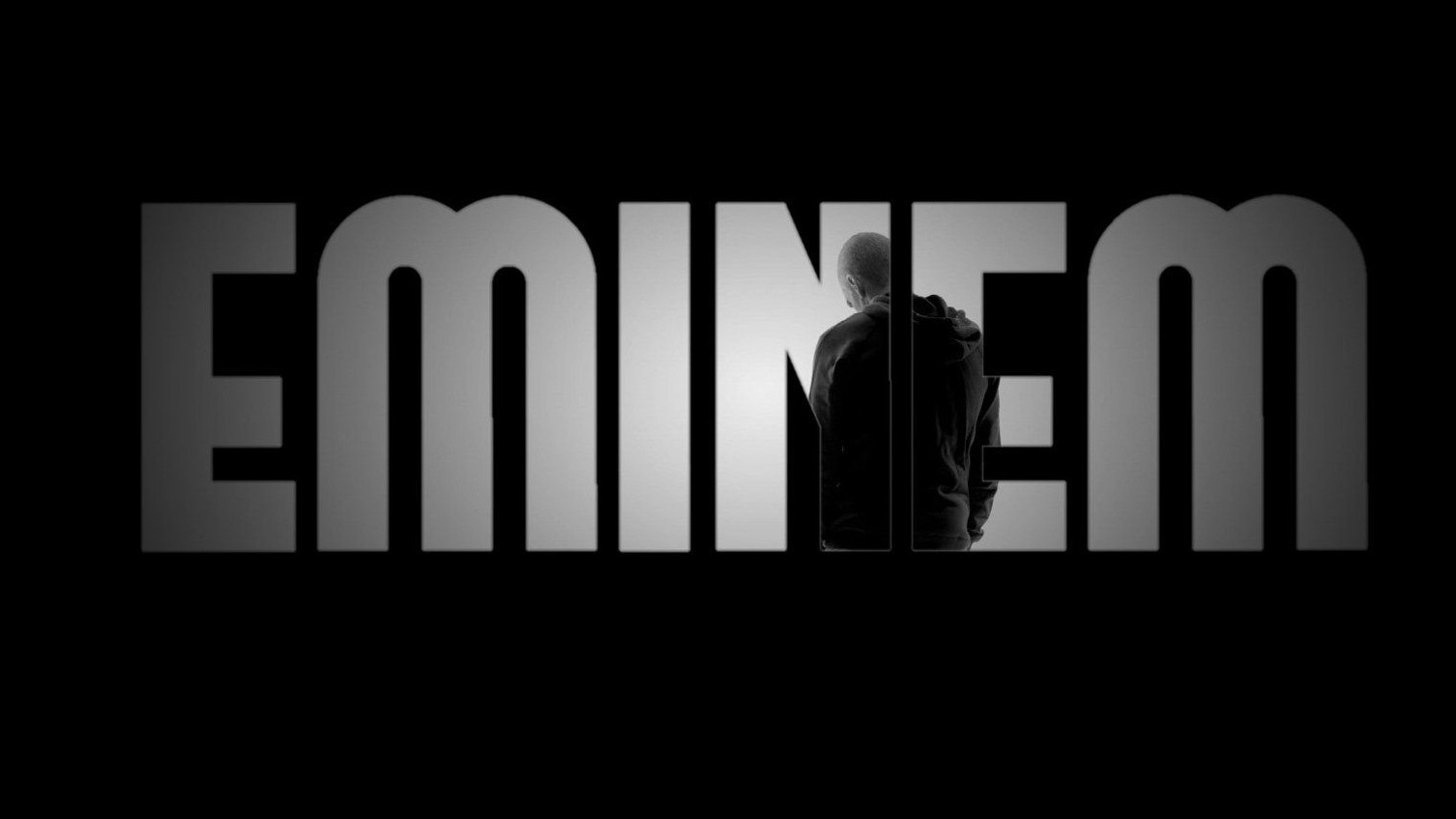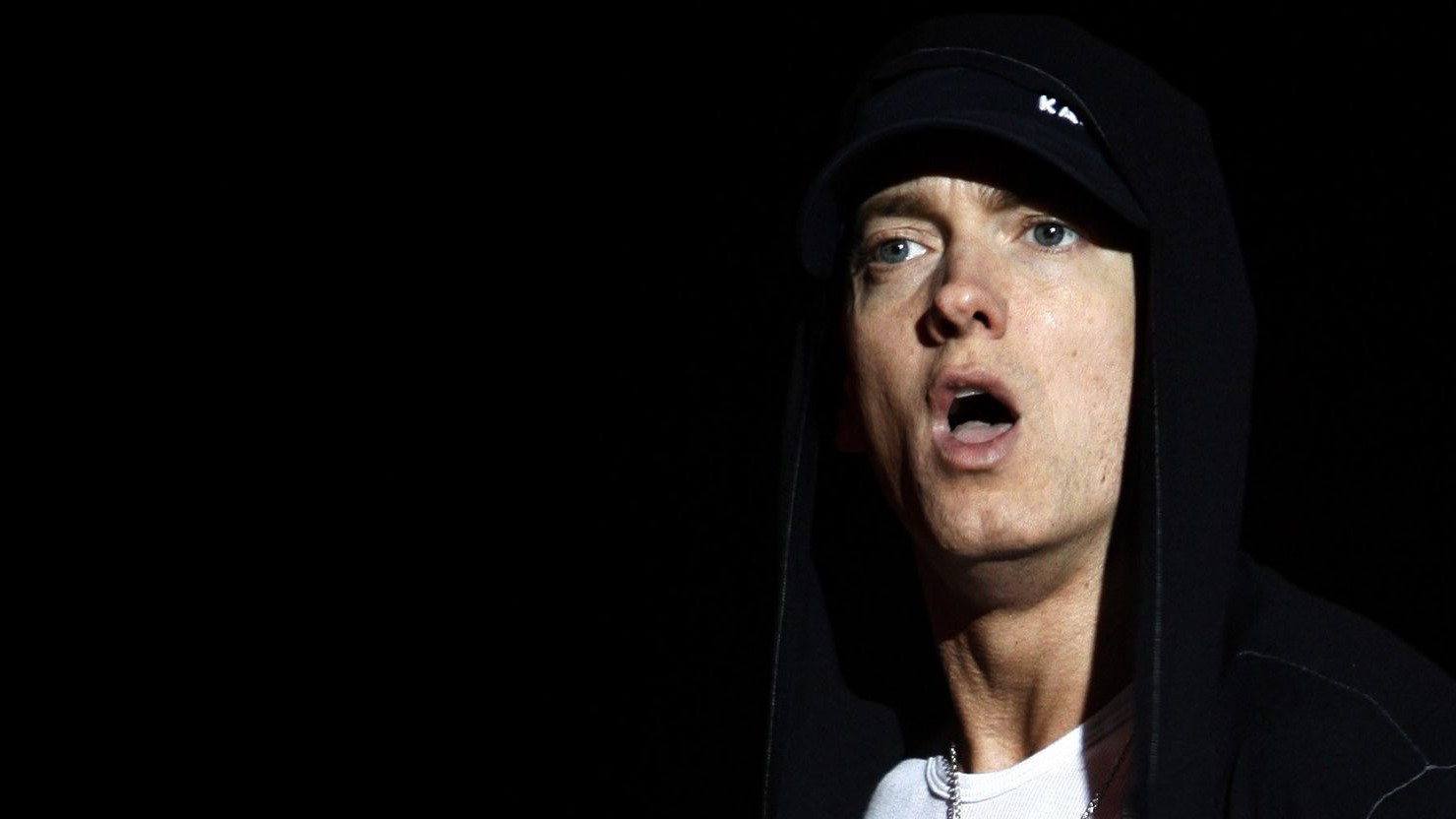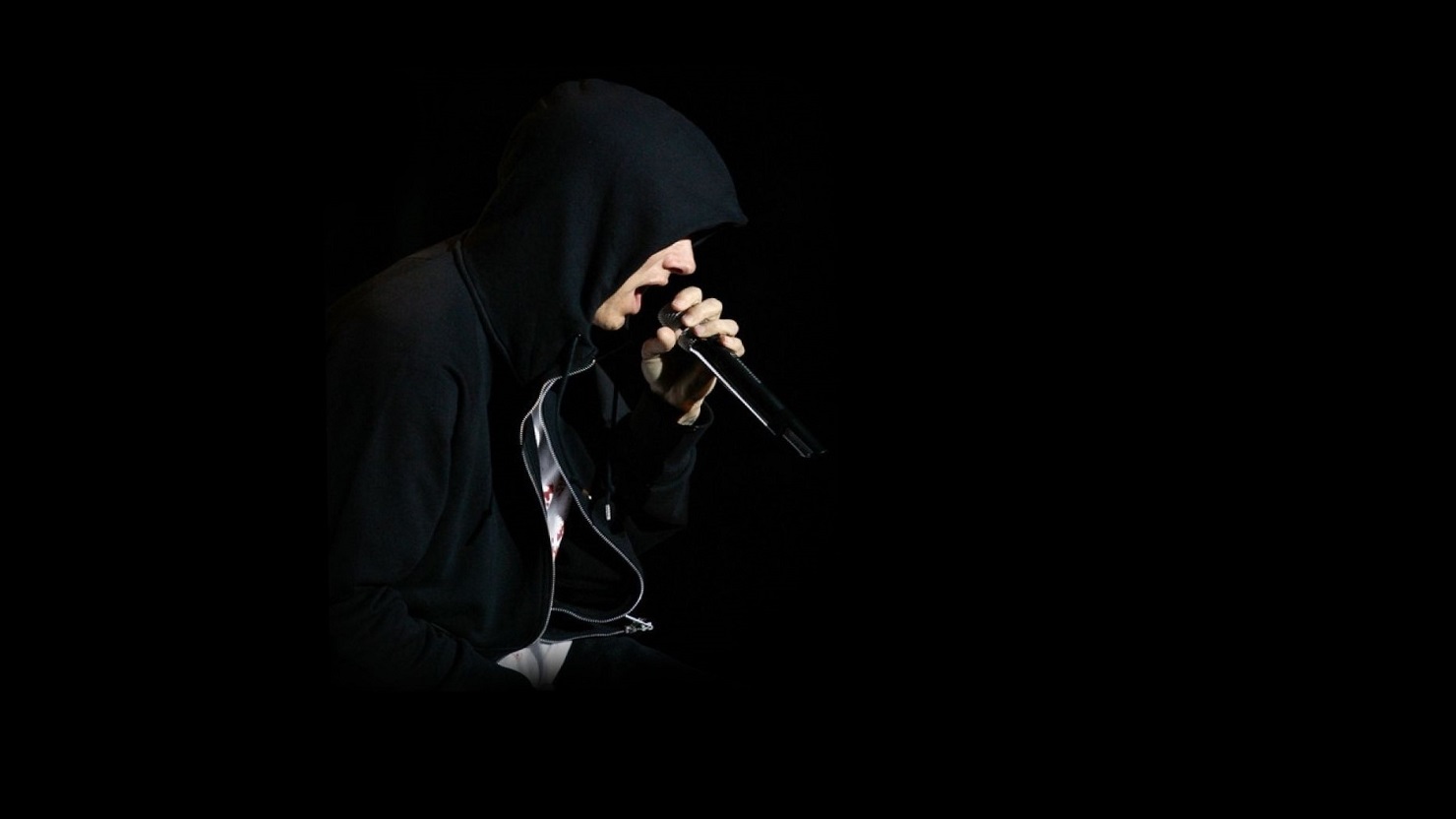Eminem
Marshall Bruce Mathers III (born October 17, 1972), known professionally as Eminem (/ˌɛmɪˈnɛm/; often stylized as EMINƎM), is an American rapper, songwriter, actor and record producer. Credited with popularizing hip hop in Middle America, Eminem's global success and acclaimed works are widely regarded as having broken racial barriers for the acceptance of white rappers in popular music. While much of his transgressive work during the early 2000s made him hugely controversial, he came to be a representation of popular angst and the American underclass. He has been influential for many artists of various genres and is often cited as one of the greatest rappers of all time.[3] After his debut album Infinite (1996) and the extended play Slim Shady EP (1997), Eminem signed with Dr. Dre's Aftermath Entertainment and subsequently achieved mainstream popularity in 1999 with The Slim Shady LP. His next two releases The Marshall Mathers LP (2000) and The Eminem Show (2002) were worldwide successes and were both nominated for the Grammy Award for Album of the Year.
After the release of his next album, Encore (2004), Eminem went on hiatus in 2005 partly due to a prescription drug addiction.[4] He returned to the music industry four years later with the release of Relapse (2009), and Recovery was released the following year. Recovery was the best-selling album worldwide of 2010, making it Eminem's second album, after The Eminem Show in 2002, to be the best-selling album of the year worldwide. In the following years, he released the US number one albums The Marshall Mathers LP 2, Revival, Kamikaze and Music to Be Murdered By. Eminem made his debut in the motion picture industry with the musical drama film 8 Mile (2002), playing a fictionalized version of himself, and his track "Lose Yourself" from its soundtrack won the Academy Award for Best Original Song, making him the first hip hop artist to ever win the award.

[5] He has made cameo appearances in the films The Wash (2001), Funny People (2009), and The Interview (2014), and the television series Entourage (2010). Eminem has developed other ventures, including Shady Records, with manager Paul Rosenberg, which helped launch the careers of artists such as 50 Cent, Yelawolf and Obie Trice, among others. He has also established his own channel, Shade 45, on Sirius XM Radio. In addition to his solo career, Eminem was a member of the hip hop group D12. He is also known for collaborations with fellow Detroit-based rapper Royce da 5'9"; the two are collectively known as Bad Meets Evil. Eminem is among the best-selling music artists of all time, with estimated worldwide sales of more than 220 million records. He was the best-selling music artist in the United States of the 2000s and the best-selling male music artist in the United States of the 2010s. Billboard named him the "Artist of the Decade (2000–2009)".

The Marshall Mathers LP, The Eminem Show,"Lose Yourself", "Love the Way You Lie" and "Not Afraid" have all been certified Diamond or higher by the Recording Industry Association of America (RIAA).[6] Rolling Stone included him in its lists of the 100 Greatest Artists of All Time and the 100 Greatest Songwriters of All Time. He has won numerous awards, including 15 Grammy Awards, eight American Music Awards, 17 Billboard Music Awards, an Academy Award and a MTV Europe Music Global Icon Award. He has had ten number one albums on the Billboard 200, which all consecutively debuted at number one on the chart making him the only artist to achieve this,[7] and five number-one singles on the Billboard Hot 100. Eminem has cited several MCs as influencing his rapping style, including Esham,[204] Kool G Rap,
[205] Masta Ace, Big Daddy Kane,[205] Newcleus, Ice-T, Mantronix, Melle Mel (on "The Message"), LL Cool J, Beastie Boys, Run–D.M.C., Rakim and Boogie Down Productions.[206] In How to Rap, Guerilla Black notes that Eminem studied other MCs to hone his rapping technique: "Eminem listened to everything and that's what made him one of the greats" [207] In the book, other MCs also praise aspects of his rapping technique; varied, humorous subject matter,[208] connecting with his audience,[209] carrying a concept over a series of albums,[210] complex rhyme schemes,[211] bending words so they rhyme,[212] multisyllabic rhymes,[205] many rhymes to a bar,[213] complex rhythms,[214] clear enunciation[215] and the use of melody[216] and syncopation.[217] Eminem is known to write most of his lyrics on paper (documented in The Way I Am), taking several days or a week to craft lyrics,[218] being a "workaholic"[219] and "stacking" vocals.[220] Examples of hip hop subgenres that Eminem's music has been described as include horrorcore,[221][222][223] comedy hip hop,[224] and hardcore hip hop.[225][226] Eminem also incorporates rap rock into his music and has cited rock acts during the 1970s and 1980s, such as Jimi Hendrix and Led Zeppelin, as influences in his music.


